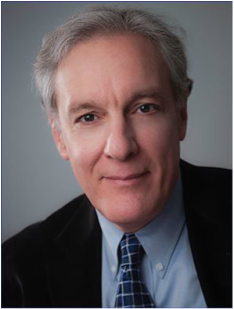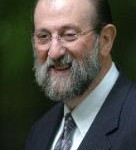 Dale Bredesen
Dale Bredesen What constitutes crazy talk with respect to Alzheimer's treatment may be a matter of opinion. Click 'Read More' below to see where the battle lines are being drawn.
New content for this site is on pause while I write a biography of neuroscience researcher and meditation teacher Shinzen Young. Feel free to browse. Reach out to me if you wish. Check out my new webpage for the book at: www.shinzenbook.com
The most exciting frontier in human knowledge right now is the human brain. We focus on sharing research that has a practical bent: food, exercise, sleep, memory improvement, supplements and so on. We also cover personal experiences with brain and mind training. Occasional guest writers share their perspectives on brain enhancement and scientific discovery. Enjoy!
|
By Paddy Kamen, publisher BetterBrainBetterLife.com  Dale Bredesen Dale Bredesen Is it possible to turn Alzheimer’s around, to have someone walk back from a diagnosis, return to work, recall foreign languages that were lost to them, and re-grow hippocampal volume? The latest research says yes, but is that research sound? This article covers the details of this groundbreaking research, along with criticism of it. What constitutes crazy talk with respect to Alzheimer's treatment may be a matter of opinion. Click 'Read More' below to see where the battle lines are being drawn.
1 Comment
 Marvin Berman, Ph.D. Marvin Berman, Ph.D. Infrared Light Helps Dementia Patients We're pleased to welcome Marvin Berman as a guest writer. His work with depression, anxiety, addictions and learning disabilities is now augmented by his research into near-infrared light stimulation (NIRS) to the brain. As you will read, he is seeking dementia patients for a two-year study into NIRS combined with neurofeedback. In this, the International Year of Light, Dr. Berman's research is both timely and very promising for humankind. By Marvin H. Berman, Ph.D. A diagnosis of dementia can be terrifying to patients and their loved ones. Some psychologists are suggesting that we should not even use the word ‘dementia’ when describing test results, saying it is preferable to talk about the ‘memory challenges’ and ‘executive functioning deficits’. The wife of a patient of mine who is struggling with short-term memory loss and expressive aphasia (can’t find the right word), recently told me she feared that if her husband was told that he probably had Alzheimer’s, he might commit suicide. She therefore spent countless hours and huge sums of money trying different methods to improve his condition but wouldn’t tell him what she knew and forbade the doctors from informing him directly of his diagnosis. But avoidance and denial create tremendous stress on the family, coloring all interactions to the point where everyone puts their energies into ensuring they don’t say something they shouldn’t. Instead of denial, families need to spend time talking about what’s really important, namely the time they spend together, including their feelings about the unknowns they are all facing as the disease progresses. Finding ways to support one another takes time and thought and support from doctors and other experts, as well as the growing dementia-support community. What patients and families need most is a sense of hope that something can be done to stop the progression of memory loss. Several hundred drug trials worldwide have so far been unsuccessful and interest is now focusing on new alternative approaches. As a neuroscientist, clinician and researcher (I founded the Quietmind Foundation and Quietmind Associates Brain Enhancement and Treatment Center in Plymouth Meeting, PA, 15 years ago), I’ve been working with brainwave biofeedback or neurofeedback (NFB), and near-infrared light stimulation (NIRS) to the brain for the past seven years. I’m very encouraged with the results we’re seeing with these technologies and I believe they hold great promise for those affected by neurodegenerative diseases including dementia and Parkinson’s disease. By Paddy Kamen, Publisher, BetterBrainBetterLife.com
My mother began experiencing mini-strokes about 15 years ago. She’s now 87 and has had full-blown dementia for at least five years. Before mom became incapable, she named me as her attorney for personal care (or substitute decision maker). This means I have a decision-making veto in the event that she is unable to make her own health care decisions. This is clearly the case now. By Paddy Kamen, Publisher, BetterBrainBetterLife.com
‘Shoot-em-up’ video games are appealing to some people and appalling to others. But are they good for the brain? Well, yes, and no. Research on the effects of action-oriented video game playing finds a mixture of seemingly positive and potentially negative effects on the brains of players. Seeing More How much do you see and how fast can your brain make use of that visual information? It turns out that the video-game-trained brain apparently makes more sense of visual stimuli and is able to act upon visual information faster. Music, the Mind and Sensory Deprivation: Musician’s Device Wins Coveted Spot at TED Conference2/26/2011  By Paddy Kamen, Publisher, BetterBrainBetterLife.com What if the brain gains associated with meditation practice could be married to the soothing elements of music in an incredibly comfortable cocoon of darkness? What if technology can be used to foster positive mood and mind states? Jay Vidyarthi says he’s a dreamer, because he “wants to help people achieve a state of peace and then apply their happiness forward to generate more positivity.” But he’s also one heck of a practical guy who has woven his interest and expertise in brain function, music and technology into a new device — the Sonic Cradle — that is premiering this week at the exclusive TEDActive conference in Palm Springs, California.  By Paddy Kamen, Publisher, BetterBrainBetterLife.com Dr. Les Fehmi, Princeton Biofeedback Centre What if your mind was like a clear pond, and the thoughts within it darting fish that don’t disturb the surface? What if you had a sense of mental lightness even when you are really busy? What if you could dissolve any physical or emotional pain with just 30 minutes of relaxed attention? Thanks to the pioneering work of Les Fehmi, an electrical engineer turned psychologist thousands of people have experienced the above, and more. Fehmi is a pioneer in EEG technology and its application to human experience. He and Donald B. Lindsey, his mentor in graduate school, discovered how the brains of monkeys process information simultaneously at several sites, rather than linearly, as was previously thought. The ability of the brain to process information simultaneously is known as synchrony.
Building on his and Lindsey’s synchrony discoveries and that of research psychologist Joe Kamiya’s finding that profound states of mental quiet associated with alpha brain waves could be trained with EEG-based feedback, Fehmi hooked himself up to a self-made EEG feedback device and tried to generate alpha wave activity. After 12 two-hour sessions he was getting nowhere. Then, during the 13th session, he became frustrated and gave up in abject failure. As soon as he gave up, the EEG showed clear and significant alpha wave activity. In fact, Fehmi experienced a profound state of consciousness that has fueled his life and work ever since. Read about Fehmi’s groundbreaking research in my book: Better Brain Better Life: Tips and Tales from the Tantalizing World of Brain Science.  By Paddy Kamen, Publisher, BetterBrainBetterLife.com In a stunning research ‘first’, the practice of meditation has been linked to cellular longevity. The discovery was made in a study that was part of the Shamatha project, which is housed within the Center for Mind and Brain at University of California, Davis (UCD). Led by Clifford Saron, associate research scientist at the Center for Mind and Brain, the Shamatha project is one of the first long-term, detailed, matched control-group studies of the effects of intensive meditation training on mind and body.
Read more about this and other research into the incredible mind/body benefits of practicing meditation in my book: Better Brain Better Life: Tips and Tales from the Tantalizing World of Brain Science. |
Subjects
All
Join Our Mailing List
Promise: Just interesting stuff and not too often! |
